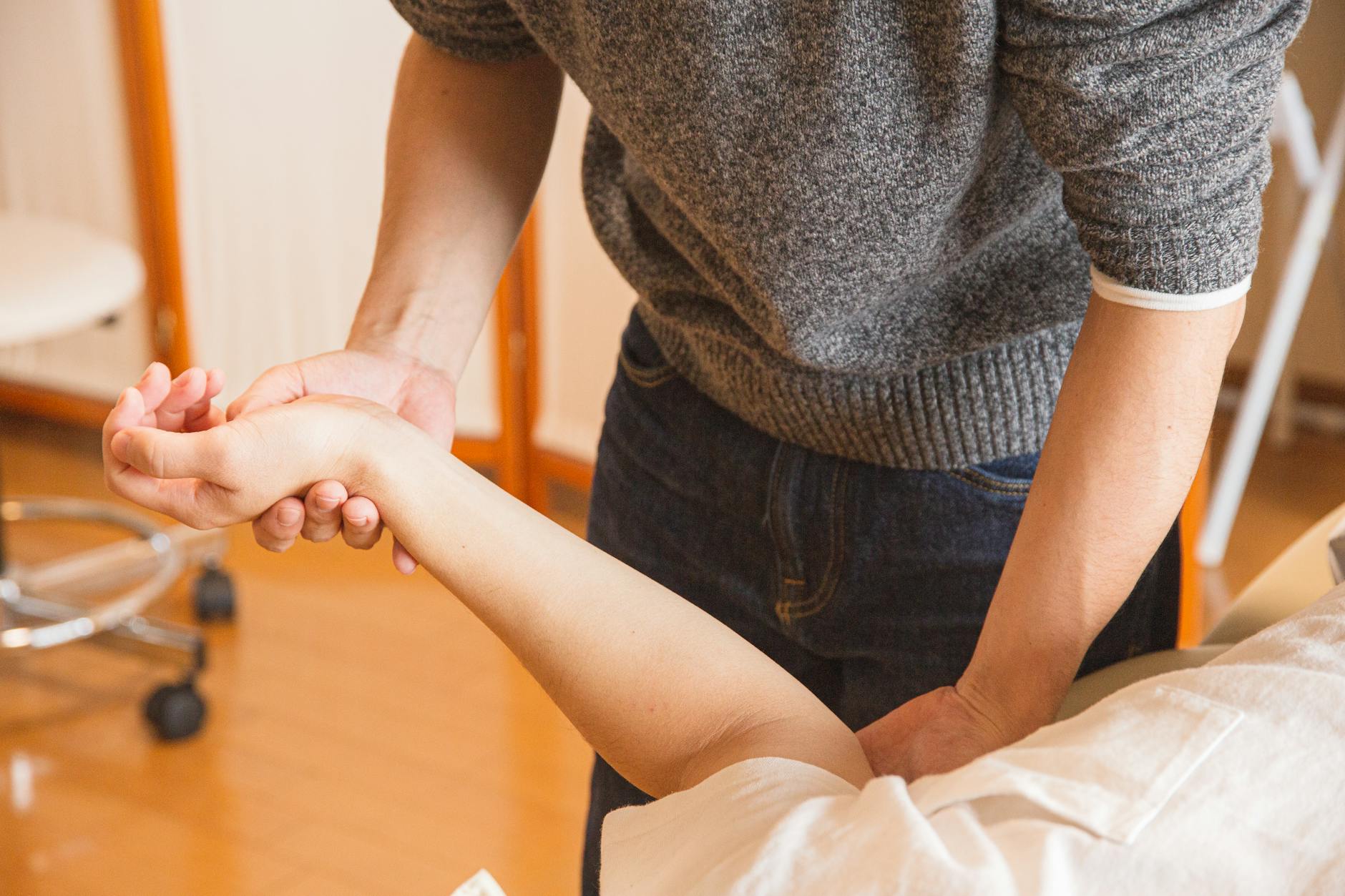Discover powerful coping strategies for healing the invisible wounds of PTSD. Learn how to find peace and inner strength within.
Table of Contents
- Identifying Triggers and Establishing Boundaries
- Seeking Professional Help and Therapy
- Engaging in Self-Care Practices
- Building Supportive Relationships
- Cultivating Mindfulness and Grounding Techniques
- Exploring Creative Outlets and Healing Modalities
- Practicing Patience and Self-Compassion
- Conclusion
Living with post-traumatic stress disorder (PTSD) can be a daily battle, as the invisible wounds of past trauma continue to haunt the present. Understanding and addressing the root causes of PTSD are crucial in taking steps towards healing and reclaiming a sense of peace and control over one’s life. In this blog post, we will explore effective coping strategies for managing the symptoms of PTSD and empowering individuals to navigate through the challenges they face.
Identifying Triggers and Establishing Boundaries
One of the first steps in coping with PTSD is recognizing triggers that can induce flashbacks or distressing memories. It is essential to identify these triggers, whether they are specific places, people, sounds, or situations, and establish boundaries to avoid or manage them effectively. By acknowledging and respecting your boundaries, you take ownership of your emotional well-being and create a safe space for yourself.
Seeking Professional Help and Therapy
PTSD is a complex mental health condition that often requires professional intervention and therapy. Seeking help from trained counselors or therapists who specialize in trauma-focused treatments can provide valuable support in processing past experiences, learning coping mechanisms, and developing strategies to manage symptoms effectively. Therapy sessions can offer a safe and non-judgmental environment to explore emotions, gain insights, and work towards healing.
Engaging in Self-Care Practices
Self-care plays a vital role in coping with PTSD and nurturing your mental and emotional well-being. Engage in activities that promote relaxation, reduce stress, and boost your mood, such as meditation, yoga, deep breathing exercises, journaling, or spending time in nature. Prioritizing self-care activities allows you to unwind, recharge, and cultivate a sense of inner harmony amidst the turbulence of PTSD symptoms.
Building Supportive Relationships
It is essential to surround yourself with a strong support network of family, friends, or support groups who understand and validate your experiences with PTSD. Building relationships based on empathy, trust, and mutual understanding can provide emotional comfort, encouragement, and a sense of camaraderie in coping with PTSD. Opening up to loved ones about your struggles can foster connection and alleviate feelings of isolation.
Cultivating Mindfulness and Grounding Techniques
Practicing mindfulness and grounding techniques can help individuals with PTSD stay rooted in the present moment and alleviate feelings of dissociation or overwhelm. Mindfulness involves focusing on sensations, thoughts, and emotions without judgment, allowing you to observe and accept your experiences with compassion. Grounding techniques, such as deep breathing, progressive muscle relaxation, or sensory grounding exercises, can anchor you in the here and now and provide a sense of safety and stability.
| Coping Strategy | Description |
|---|---|
| Therapy | Seeking professional help from a therapist who specializes in trauma can provide valuable guidance and support in processing emotions and developing healthy coping mechanisms. |
| Support Groups | Connecting with others who have experienced similar traumas can provide a sense of community, understanding, and validation. Support groups offer a safe space for sharing experiences and coping strategies. |
| Self-Care | Engaging in activities that promote physical and mental well-being, such as exercise, meditation, journaling, and spending time in nature, can help reduce stress and improve overall quality of life. |
| Education | Learning about PTSD, its symptoms, and treatment options can help individuals better understand their experiences and feel empowered in their recovery journey. |
| Healthy Relationships | Cultivating supportive and nurturing relationships with family, friends, and partners can provide a strong foundation for healing and resilience. |
Exploring Creative Outlets and Healing Modalities
Engaging in creative outlets, such as art therapy, music therapy, dance, or writing, can serve as powerful tools in processing emotions, expressing inner experiences, and fostering self-discovery. These healing modalities offer a unique avenue for self-expression and catharsis, empowering individuals to reclaim their voices, stories, and identities beyond the confines of PTSD. Creativity can serve as a transformative medium for healing and growth.
Practicing Patience and Self-Compassion
Recovery from PTSD is a journey that requires patience, self-compassion, and resilience. It is essential to recognize that healing unfolds at its own pace and that setbacks and moments of vulnerability are natural parts of the process. Practice self-compassion by treating yourself with kindness, understanding, and forgiveness as you navigate the challenges of PTSD. Embrace your inner strength and courage in facing adversities and moving towards a place of healing and renewal.
Conclusion
Embracing coping strategies for PTSD is a courageous and empowering step towards reclaiming agency over your mental health and well-being. By identifying triggers, seeking professional help, engaging in self-care practices, building supportive relationships, cultivating mindfulness, exploring creative outlets, and practicing patience and self-compassion, individuals can navigate the complexities of PTSD with resilience and grace. Remember that healing is a deeply personal and transformative process, and that you deserve compassion, understanding, and healing on your journey towards wholeness.
FAQ
What are common triggers for individuals with PTSD?
Common triggers for individuals with PTSD can include loud noises, crowded spaces, certain smells, specific locations associated with the trauma, or even certain phrases or behaviors that remind them of the traumatic event.
How can mindfulness help with coping strategies for PTSD?
Mindfulness can help individuals with PTSD stay grounded in the present moment, reduce anxiety, and regulate their emotions. By practicing mindfulness techniques, individuals can increase self-awareness, manage stress, and cultivate a sense of calm amidst their PTSD symptoms.
What role do supportive relationships play in coping with PTSD?
Supportive relationships provide emotional comfort, understanding, and validation for individuals with PTSD. Building strong connections with loved ones or support groups can offer a sense of belonging, reduce feelings of isolation, and create a safe space for sharing experiences and coping strategies.
Is it normal to experience setbacks on the healing journey from PTSD?
Yes, setbacks are a normal part of the healing journey from PTSD. Recovery is not linear, and individuals may experience moments of vulnerability or relapse. It is important to practice self-compassion, patience, and resilience in navigating through setbacks and continuing on the path towards healing and renewal.





